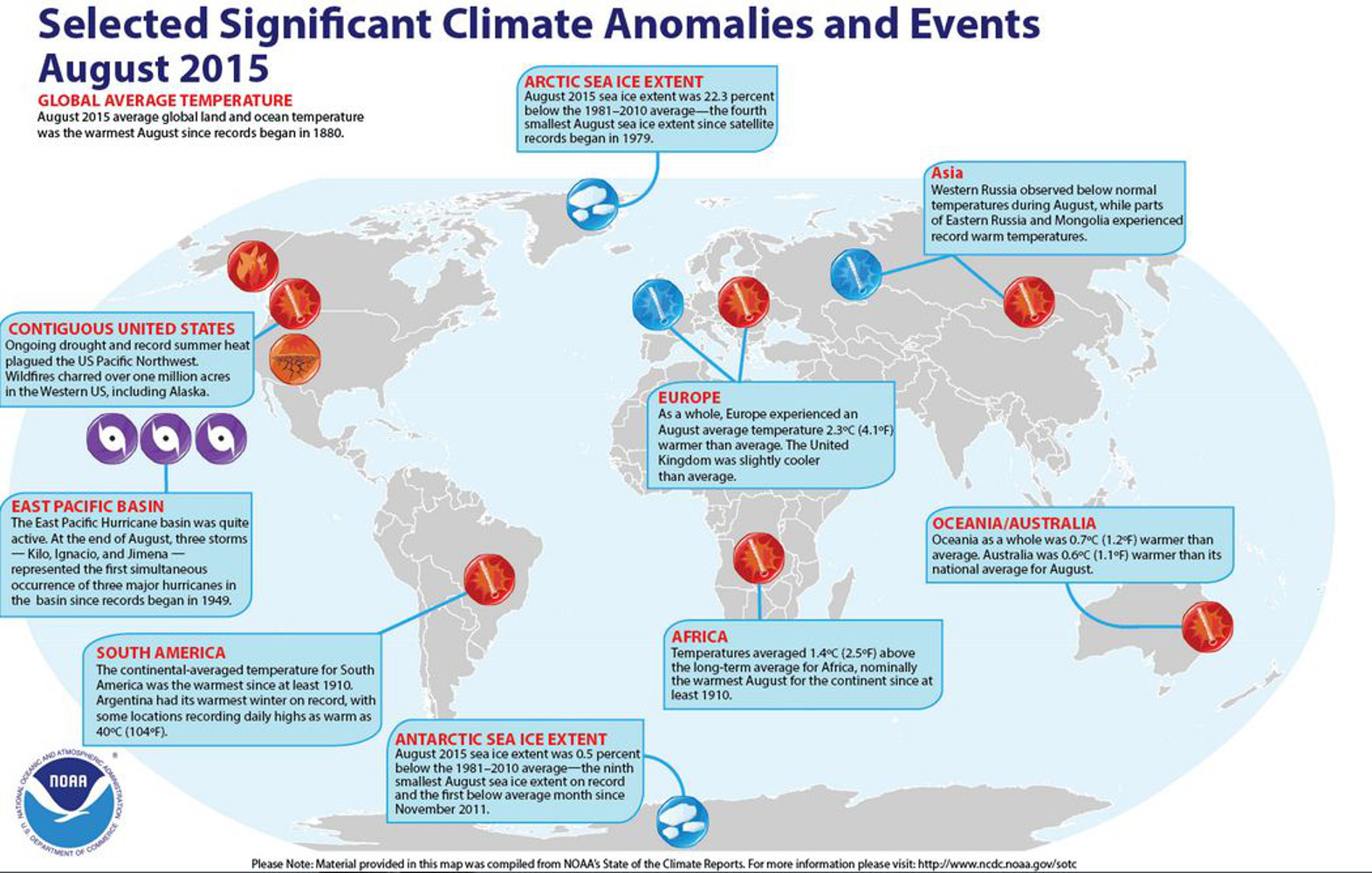As a whole, Africa had the warmest August since at least 1910, with temperatures 1.4°C hotter than the long-term average.
South Africa’s scorching spring is set to roll into summer, with the country joining others around the world in posting record heat deviations.
Meteorological data released by NASA in the United States this month said last September was the second hottest September on record. Given this, the agency said there was a 99% chance that 2015 would be the hottest year ever recorded.
The Japan Meteorological Agency has recorded this September as slightly hotter than last year, making it the hottest on record.
The previous hottest year ever recorded was 2014, with average global temperatures 0.27°C above the average for 1981 to 2000. This saw average temperatures broken from May until the end of the year. Ten of the hottest years on record have come since 1998, where an unusually strong El Niño pushed up global temperatures.
The World Meteorological Agency said last year was the 38th consecutive year of above-average temperatures.

The National Climate Centre in the United States drew together temperature anomalies from across the world for the August. As a whole, Africa had the warmest August since at least 1910, with temperatures 1.4°C hotter than the long-term average, it said. The continent’s position at international climate negotiations has been to ensure that a global agreement is signed that ensures temperature increases do not exceed 1.5°C from pre-industrial levels. The UN’s climate change body – the Intergovernmental Panel on Climate Change – said last year that if temperatures increase unchecked, climate change will be “severe, pervasive and irreversible”.
Africa would feel the brunt of this, as the continent with the greatest future temperature increases and the lowest ability to adapt to those changes, it said. “Africa as a whole is one of the most vulnerable continents due to its high exposure and low adaptive capacity.”
The South African Weather Service warned in early September that “extremely dry and hot conditions” were likely to persist throughout the summer. The driving force behind this was an unusually strong El Niño, it said. This warms the Pacific Ocean and drives heat waves and drought in the southern hemisphere.
The US National Oceanic and Atmospheric Administration said this month that El Niño would probably make the Pacific 2C hotter than normal, making it amongst the most powerful such phenomenon on record.
The last strong El Niño in 1998 drove temperatures far above average, a spike which has been long used by climate change skeptics to say temperatures have not subsequently increased.
Strong El Niño surges in 1983 and 1992 created two-year-long droughts across southern Africa. The current drought started last year, with late and minimal rains dropping the grain yield by between a quarter and a third.
Data compiled by the South African Weather Service shows that several heat waves – where the temperature is at least five degrees above average – have been experienced across the country. The capital Pretoria normally has a spring maximum of 29°C, but has regularly had temperatures reach 37°C.
The sudden surge in warming comes after a long period where the world should have been cooling. According to data collated by the UN’s climate change body things such as solar activity, which normally cool the planet, were at their strongest in the last few years. As they end, the panel said the natural warming they drive would be added to the warming driven by human warming of the planet.